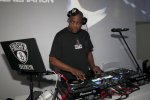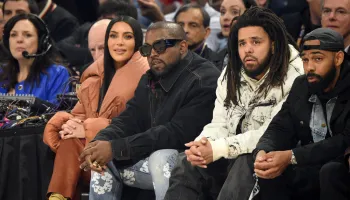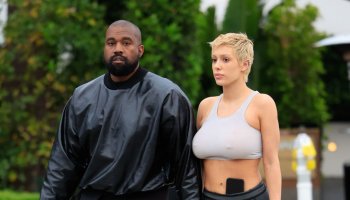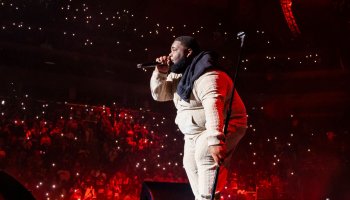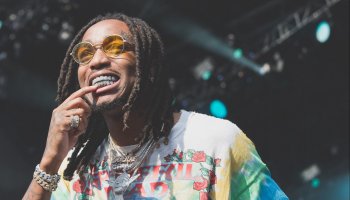An interview between opinionated sports columnist Jason Whitlock and The Last Poets member Dahveed Nelson resulted in the gentlemen concluding that Trayvon Martin‘s death was the result of the current Hip-Hop landscape. Nelson’s group countered the considerable logic leap of Nelson and Whitlock in a timely written statement.
To provide background, Whitlock, who has been critical of Jay Z and Hip-Hop culture as a whole, has often decried in his column what he feels is a “mindlessly rebellious music culture” that athletes have flocked towards. Of course, Whitlock takes aims at easy targets, electing to ignore the dozens of rap artists and athletes of high and low profile that do good things within the name of Hip-Hop.
Yet, Whitlock was able to get Nelson on board with the Hip-Hop witch hunt, managing to connect Martin’s death to the culture.
“You can put the blame squarely on hip hop. It’s a marriage,” said Nelson of the Zimmerman trial outcome and the death of Martin. “It’s like the movie Django; you have those who collaborate with the enemy. The enemy has its responsibilities, but you’ve got the collaborators. That’s what the whole hip-hop culture is.”
The Last Poets, consisting of remaining members Umar bin Hassan, Jalal Mansur Nurriddin, and Abiodun Oyewole, cut down Nelson’s words in the statement written by Hassan and Nurriddin, which is posted in full below.
From The Last Poets:
Recently, Dahveed Nelson, a founding member of the Last Poets, commented in an interview with Jason Whitlock that hip hop is the devil. Most troubling, he called hip hop a “collaborator” in the murder of Trayvon Martin.Dahveed Nelson is a respected and honored member of the Last Poets but he speaks for himself.
While it’s debatable that what passes as hip hop today is even hip hop, saying hip hop “collaborated” in Trayvon”s murder is not worthy of debate. The real collaborators are the “stand your ground law” in Florida and racist stereotypes that transform black children into black monsters. Because the Poets are not some programmed machine that acts as one, thinks as one, and moves as one, some might mistake Dahveed’s comments to Whitlock as representative of the group.
Since we started in 1968, we all have been independent thinkers. That’s what made us the unique group that we are. Until all of us old-heads and young-heads can sit down with one another or across from one another and reason with one another, we suspect there will be little we can do to protect the Trayvon Martins to come. And if we allow that to happen, then all of us must take the blame.
Oyewole wrote a similar response last week in an exclusive with AllHipHop.com, echoing the sentiment of togetherness over division.
Par the course for Whitlock, he harps on one segment of Hip-Hop he disagrees with, in this case the use of the N-word. While he’s well within his rights to have his opinion, it is beyond obvious he needed someone like Nelson to validate his narrow and short-sighted viewpoints. As Whitlock noted, nobody can argue Nelson’s pedigree or call him a “sellout” as the columnist, apparently wounded by the critics, artfully shares that he’s been called just that.
Whitlock isn’t necessarily a sellout, but his weak jabs at Jay Z and Hip-Hop culture don’t foster the change he hopes to see. In fact, if responsibility is at root, Whitlock is just as complicit as the culture he’s grown to hate in drawing an unnecessary line in the sand between himself and Hip-Hop.
—
Photo: The Last Poets
